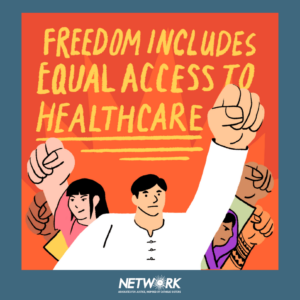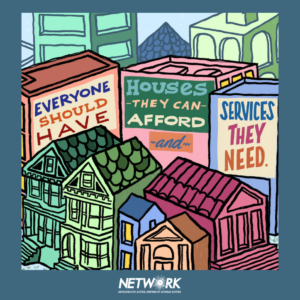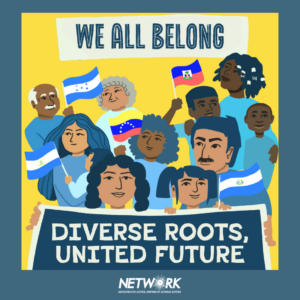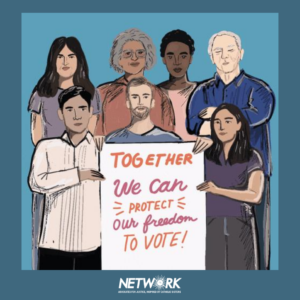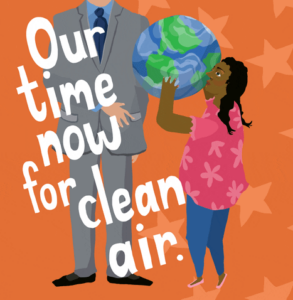Present Day Trauma and Old Wounds
We Need Solidarity Across Communities to Counter the Horrors of the Budget Bill’s Immigration Provisions
Joan F. Neal
June 26, 2025
In responding to the budget reconciliation bill now expected to pass the U.S. Senate this week, NETWORK and Sisters around the country have focused much attention on the calamitous cuts to health care and food programs in the bill, especially as they would go to tax cuts for the wealthiest individuals in the country. This is a worthy focus, given the millions of people whose lives are threatened by this disastrous bill.
Sadly, this is only part of the story. NETWORK has also called attention to the $150 billion this bill allots to terrorizing our communities through scaled up immigrant detention and deportation efforts. The horrific policies and actions under this Administration have drawn much attention in the media.
One recent example is the viral video of Narciso Barranco, a California gardener, being beaten by agents as they arrest him. One of his sons, a Marine who put his life on the line for our country, says he is heartbroken and betrayed. While this violence is happening to specific families, the shockwaves it sends through our communities are palpable. It is also intergenerational. Clearly, we need to realize that no individual, family or community is safe when this level of unchecked militarization descends upon us at such an expanded scale.
For Black people in the U.S., images of masked and armed men snatching people off the streets and disappearing them evoke another horrific chapter in U.S. history, one that is still discernable in the rear-view mirror. Neighbor turned on neighbor along racial lines. There was vigilante justice against the Black community, and, just like today, people were afraid to live their daily lives. The impacts on our communities are comparable in terms of the terror and trauma they spread.
Across the U.S., we should feel real pain watching neighbors, coworkers, friends, and families—including those with legal residency in the U.S.—being hauled away from their homes, workplaces, and loved ones. We need to lean into this empathy and let it draw us into action. Solidarity is our salvation.
We have mustered this widespread solidarity before, the most recent and far-reaching example being the Civil Rights movement, which saw white people—including many Catholic Sisters and clergy—joining protests and marches to decry racial segregation and the denial of civil rights, voting rights, fair housing and more, to Black people – U.S. citizens. The Civil Rights movement is an example of how solidarity across communities can work to counter systemic injustice and lead to societal transformation. This is a lesson we should all remember at this time of turmoil.
So as we act together in resistance to the current push to pass the ‘big, bad’ budget reconciliation bill, we cannot lose sight of the human cost of this terrible, unjust piece of legislation that will provide billions of dollars to continue the violent assaults on immigrants while slashing essential programs for all people across the country who need assistance. Rather, we must once again come together in solidarity so that none of us, no matter who we are, react to the harm of another person without empathy. We must acknowledge that we are all one, human family without exception—as residents of this country, as members of communities, as children of God—and act accordingly.
We shouldn’t need horrors such as these ICE raids or devastating cuts to essential programs to remind us of this oneness, but here we are. Thankfully, protests and other actions in recent weeks have shown encouraging signs that we are still capable of recognizing our shared humanity. Let us pray and act so that these acts of solidarity continue.
Use NETWORK’s Budget Reconciliation Toolkit to take part in our advocacy against this bill.







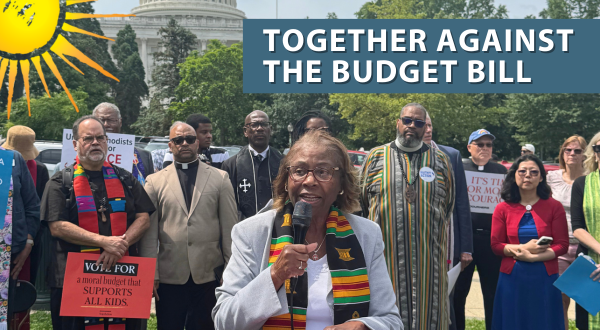


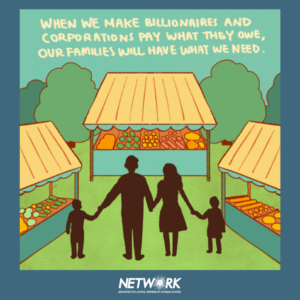
 Sr. Emily TeKolste, SP is NETWORK’s Grassroots Mobilization Coordinator. To read more, check out her column in Global Sisters Report,
Sr. Emily TeKolste, SP is NETWORK’s Grassroots Mobilization Coordinator. To read more, check out her column in Global Sisters Report, 